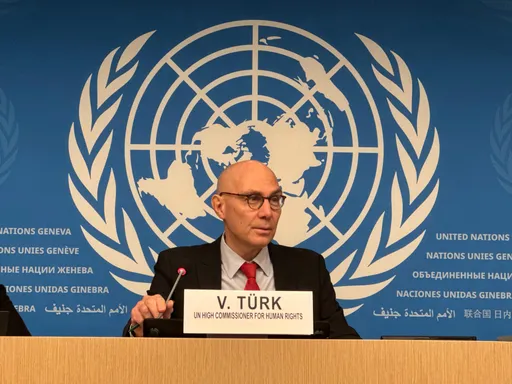Karabakh: a place where a terrible six-year war was fought from 1988-1994, but many have not heard of it. Karabakh remains after three decades not only a source of major tension between Azerbaijan and Armenia - who remain in a standoff over the Armenian occupied part of Karabakh - but is also a major stumbling block for any hope of reconciliation between Armenia and Turkey.
Sharing common historical bonds and regional strategic interests, Turkey and Azerbaijan have been adamant that any peace deal and normalisation of ties with Armenia must be predicated on the latters acceptance of UN Security Council Resolutions calling upon the withdrawal of Armenian military forces from Karabakh - a region that constitutes around 20 percent of Azerbaijani territory.
But Armenia recently announced that it now considers the 2009 reconciliation protocol with Turkey null and void, citing its opposition to linking the withdrawal of its forces from Karabakh with opening the border and normalising its bilateral relationship with Ankara.
Turkey’s refusal to abandon Azerbaijan in its struggle is also a product of a shared tragedy. The 1992 massacre of over a thousand Azerbaijani citizens in the village of Khojaly committed by advancing Armenian forces in Karabakh is viewed by both Azerbaijan and Turkey as a national tragedy.
Enhancing Azerbaijan’s military capacity to defend itself and to prepare for a military contingency involving Karabakh has been a priority for Turkey. Increasingly, both Baku and Ankara view their respective militaries as being inexorably interlinked.
Armenia’s rejection of reconciliation measures with Turkey thus raises tensions at a time when diplomatic solutions to the Karabakh conflict seem to be reaching a dead end.
And during a recent deployment to the trenches separating the Azerbaijani and Armenian militaries along the Line of Contact in Karabakh, it was clear that war could break out at any time.
Azerbaijan has also accused Armenia of continuously violating the status quo ante ceasefire between the two countries. The no-man’s land separating the Armenian and Azerbaijani military positions along the occupied Karabakh region still occasionally flares up. The Azerbaijan ministry of defence recently claimed that in just one 24 hour time period alone, Armenia reportedly violated the ceasefire on 90 separate occasions.
Turkey’s defence cooperation with Azerbaijan has grown steadily over the years with both countries seeking to modernise their respective forces in a coordinated approach.
According to Zaur Shiriev, an Azerbaijan researcher with the International Crisis Group, “Bilateral military cooperation especially in regard to joint military products is the main feature of cooperation. Azerbaijan is increasing its military procurement from Turkey. President Alieyv announced a few months ago that Turkey will be the top military market for the modernisation of Azerbaijan’s armed forces.”
It was also clear that Azerbajan’s military forces have found a renewed confidence when speaking with the Major General who is the Corps commander of Azerbaijani forces in the northern sector of the Line of Contact that saw heavy fighting merely two years ago when Azerbaijan’s military was able to recapture some of its territory from Armenia.
The military modernisation program set forth by President Aliyev, and Turkey’s infusion of defence support make the Armenian decision to reject a diplomatic solution a risky gamble.
Russia’s ongoing military backing of Armenia and its powerful hardline diaspora who provide Armenia billions of dollars in aid, are regularly cited as reasons on why Yerevan sees little incentive to compromise.
Indeed, many Azerbaijani analysts and historians speak of a historical Russian effort - from the time of the Russian Empire through the Soviet era to the modern day to leverage the resettlement of Armenians in territory that Azerbaijan claims as its own in order to maintain a ‘buffer zone’ that Moscow can use to project power and influence in the Caucus.
The Caucus is a region that has long seen multiple intersecting conflicts between historical rivals. If conflict breaks out yet again, it could have global consequences at a time when Azerbaijan and Turkey are partnering to become major contributors to European energy security through the soon to be completed Southern Gas Corridor that will offer billions of cubic meters of natural gas to European markets that are still heavily dependent upon Russian gas supplies.
For Armenia, peace with Turkey ultimately runs through Karabakh. And until Armenia recognises that the risks associated with obstinately maintaining its occupation in Karabakh far outweigh domestic political benefits of refusing to open a new era of regional peace and security, then any hope for a sustained deal could easily give way to more fighting in the near future.























